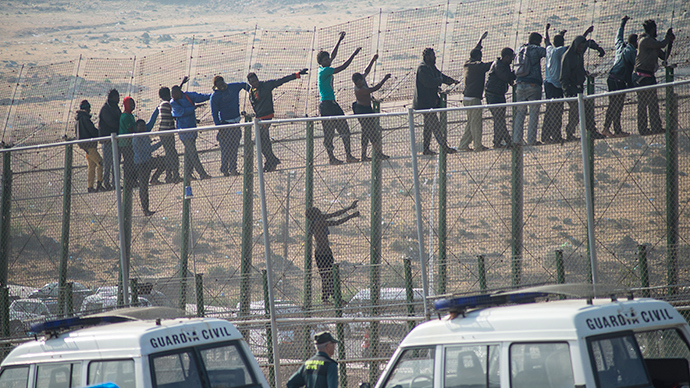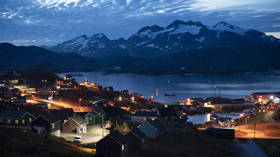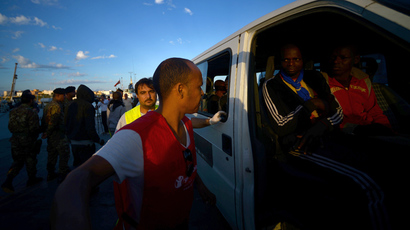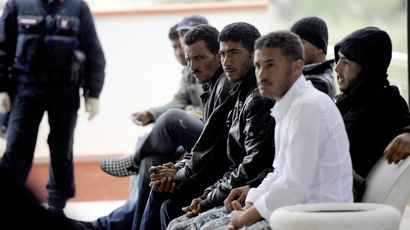Blade runners: 5-meter razor-wired wall planned to keep Moroccan migrants out of Spain

Morocco will erect a five-meter-high wall, topped with blades and barbed-wire, on the border with Melilla, a north-African Spanish enclave. The measure will target migrants trying to cross into Europe, according to local activists.
The Saturday reports from the nearby northern coastal city of Nador were confirmed by AFP, who spoke to the head of the Rif Association for Human Rights, Chekib el-Khayari.
"Construction work for a barrier began about 20 days ago," he said, also confirming the wall’s dimensions. Adil Akidm, a member of another group, the Moroccan Human Rights Association, has added to the reports, saying that work on the wall’s foundation has been going on for some time.
The government declined to comment.
The European Union and Africa share only two land borders: one of them in Ceuta, a western Spanish territory, the other Melilla. Both sustain the entire weight of illegal African migrant crossings by those seeking a new life in Europe.
The reason the two borders bear the stress of all the crossings is because crossing by water is a far less attractive and dangerous option. And when people can’t acquire boats, they swim. Fifteen died in February while trying to reach Ceuta from a Moroccan beach.
One of the biggest daring escapes in nearly a decade occurred in March, when 1,000 people jumped the existing triple-layer wire fence built by the Spanish, with about half of them successful. Another 500-person leap to freedom was made earlier this month, with about a quarter getting through into Spain.

Spanish Prime Minister Mariano Rajoy has appealed to the EU to clamp down on the practice and delegate more resources to battling it with better border management.
The February incident was not a straightforward drowning: as it turned out the Spanish were also using rubber bullets to deter the swimmers. Although they earlier confessed to firing, no one was allegedly hit. But the EU Home Affairs spokesperson Michele Cercone treated the case seriously and as a possible breach of EU laws by a member state.
"The commission will be requesting explanations from the Spanish authorities on these events," she told reporters at the time. The EU Commissioner for Home Affairs Cecilia Malmstrom also said she was "very concerned about Spanish police using rubber bullets to deter migrants."
"I expect clarifications from the authorities," Cecilia Malmstrom tweeted.
The mid-February incident follows another, February 6 incident, in which Spain’s border police had also admitted to using rubber bullets to deter 200 people from reaching Ceuta.
Every year, just as thousands try to swim, others attempt to climb the walls marking the border with Morocco. According to the Spanish news agency RTVE, this year alone border patrol services intercepted up to 4,370 migrants trying to enter Spain. According to official data, up to 3,000 illegal migrants entered Spain in the first half of last year, double the figure for the same period in 2012.
Organizations like Human Rights Watch believe they have a solid reason. An earlier 79-page report details the harsh treatment of sub-Saharan African migrants in Morocco, which states that the Moroccan security forces "commonly beat, otherwise abuse, and sometimes steal from sub-Saharan migrants in the northeastern part of the country."














